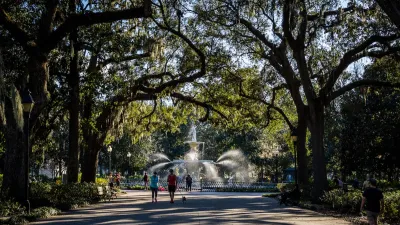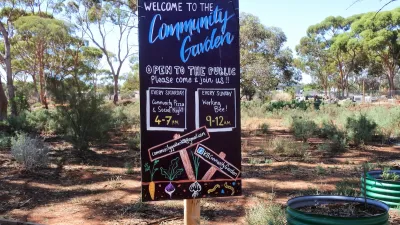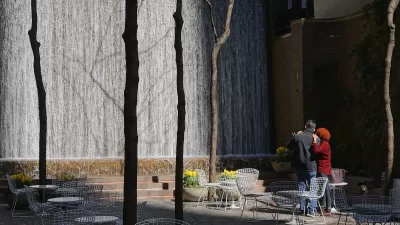Vacant lots and underutilized dirt patches are the the romping grounds of a new breed of activists. Known as "guerrilla gardeners", groups of people all over the world are reclaiming their cities' public spaces and landscapes by planting seeds.
"I do not wait for permission to become a gardener but dig wherever I see horticultural potential. I do not just tend existing gardens but create them from neglected space. I, and thousands of people like me, step out from home to garden land we do not own. We see opportunities all around us. Vacant lots flourish as urban oases, roadside verges dazzle with flowers and crops are harvested from land that was assumed to be fruitless. The attacks are happening all around us and on every scale - from surreptitious solo missions to spectacular campaigns by organised and politically charged cells."
"This is guerrilla gardening."
"The plants survived the next few uncertain days and I picked up a little gossip that the improvement had been noticed by residents. Most assumed the council had finally got round to doing something. I was not yet confident enough to out myself to the neighbours. I preferred to remain undercover and continue my gardening uninterrupted."
"Yet it was all too much fun to keep secret. I was happily entertaining friends with my exploits, and chose to spread the word further by blogging about it. I did not give much thought to the name when I set up the site, but GuerrillaGardening.org seemed to sum it up, and for a while I even thought I had invented the term. Weeks later, as I surfed around to see how my site was performing in search engines, I was amazed to discover all sorts of references to guerrilla gardening. There were guerrillas all over the place! As they shared their stories with me, I realised that I was part of something much bigger."
"I'll identify the guerrillas here by the "troop numbers" they were given when they signed up at GuerrillaGardening.org."
FULL STORY: Stand by your beds

Study: Maui’s Plan to Convert Vacation Rentals to Long-Term Housing Could Cause Nearly $1 Billion Economic Loss
The plan would reduce visitor accommodation by 25,% resulting in 1,900 jobs lost.

North Texas Transit Leaders Tout Benefits of TOD for Growing Region
At a summit focused on transit-oriented development, policymakers discussed how North Texas’ expanded light rail system can serve as a tool for economic growth.

Using Old Oil and Gas Wells for Green Energy Storage
Penn State researchers have found that repurposing abandoned oil and gas wells for geothermal-assisted compressed-air energy storage can boost efficiency, reduce environmental risks, and support clean energy and job transitions.

Santa Barbara Could Build Housing on County Land
County supervisors moved forward a proposal to build workforce housing on two county-owned parcels.

San Mateo Formally Opposes Freeway Project
The city council will send a letter to Caltrans urging the agency to reconsider a plan to expand the 101 through the city of San Mateo.

A Bronx Community Fights to Have its Voice Heard
After organizing and giving input for decades, the community around the Kingsbridge Armory might actually see it redeveloped — and they want to continue to have a say in how it goes.
Urban Design for Planners 1: Software Tools
This six-course series explores essential urban design concepts using open source software and equips planners with the tools they need to participate fully in the urban design process.
Planning for Universal Design
Learn the tools for implementing Universal Design in planning regulations.
Ascent Environmental
Borough of Carlisle
Institute for Housing and Urban Development Studies (IHS)
City of Grandview
Harvard GSD Executive Education
Toledo-Lucas County Plan Commissions
Salt Lake City
NYU Wagner Graduate School of Public Service





























